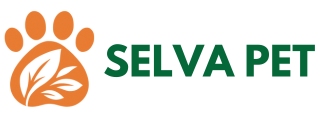Welcome to your essential guide on Toy Poodle: How to Care for and Avoid Common Health Problems. In this article, you’ll discover everything from daily routines and grooming tips to recognizing health issues and creating a loving environment for your furry friend. By understanding your Toy Poodle’s specific needs and how to address them, you’ll ensure that their life is not only happy but healthy too. Let’s dive in and equip you with the necessary knowledge to give your Toy Poodle the best care possible!
Toy Poodle: How to Care for and Avoid Common Health Problems
Caring for a Toy Poodle is a rewarding journey. These little furballs are not just adorable; they have unique needs that require your attention. In this guide, I’ll share essential tips on how to keep your Toy Poodle happy and healthy while avoiding common health problems. Let’s dive right in!
Essential Toy Poodle Care Tips
Understanding Your Toy Poodle’s Needs
First things first, understanding your Toy Poodle’s needs is crucial. These dogs are intelligent and affectionate. They thrive on companionship and need your love and attention. Make sure you spend quality time with them every day. They’re not just pets; they’re family!
Toy Poodles are small but mighty. They need mental stimulation just as much as physical exercise. Interactive toys and puzzles can keep their minds sharp. A bored Toy Poodle can become destructive, so keep them engaged!
Daily Routines for Happy Toy Poodles
Establishing a daily routine can make a world of difference for your Toy Poodle. Here’s a simple breakdown of a daily routine:
- Morning Walk: Start the day with a brisk walk. This helps them burn off energy and sets a positive tone for the day.
- Feeding Time: Stick to a consistent feeding schedule to regulate digestion and maintain health.
- Playtime: Dedicate time for play, whether it’s fetch, tug-of-war, or running around in the yard.
- Training Sessions: Incorporate short training sessions to keep their minds active and strengthen your bond.
- Evening Wind Down: End the day with cuddles and relaxation to help them feel secure and loved.
Creating a Comfortable Living Space
Creating a comfortable living space for your Toy Poodle is essential. Here are some tips:
- Cozy Bed: Invest in a quality dog bed that offers support.
- Safe Environment: Ensure your home is safe by removing hazards that could harm your curious little friend.
- Designated Play Area: Set up a space where they can play freely, such as a corner of your living room or a fenced yard.
Common Toy Poodle Health Problems
Recognizing Signs of Illness
Keeping an eye on your Toy Poodle’s health is vital. They can’t tell you when something’s wrong, so you need to be vigilant. Here are some signs of illness to watch for:
- Changes in Appetite: If your Toy Poodle suddenly stops eating or drinking, it could be a warning sign.
- Lethargy: If they seem unusually tired or disinterested in play, it’s time to investigate.
- Vomiting or Diarrhea: These are serious symptoms that require immediate attention.
- Coughing or Sneezing: Respiratory issues can develop, especially in small breeds.
Preventive Measures for Health Issues
Prevention is better than cure! Here are some preventive measures you can take:
- Regular Vet Visits: Schedule check-ups at least once a year to catch potential issues early.
- Vaccinations: Keep your Toy Poodle’s vaccinations up to date to protect them from various diseases.
- Healthy Diet: Feed them a balanced diet tailored to their age and size to support overall health.
Importance of Regular Health Check-ups
Regular health check-ups are crucial for your Toy Poodle. During these visits, your vet will:
- Assess their weight and overall condition.
- Check for dental issues, which are common in small breeds.
- Discuss any behavioral changes you’ve noticed.
Grooming Your Toy Poodle Effectively
Best Grooming Practices for Toy Poodles
Grooming is an essential part of Toy Poodle care. Their curly coats require regular attention. Here’s how to groom them effectively:
- Brush Regularly: Brush their coat at least once a week to prevent matting.
- Bathing: Bathe them every 4-6 weeks using a gentle dog shampoo.
- Ear Care: Check their ears weekly for dirt and wax buildup. Clean them gently with a vet-recommended solution.
Tools You Need for Grooming
Having the right tools makes grooming easier. Here’s a list of must-haves:
| Tool | Purpose |
|---|---|
| Slicker Brush | Removes mats and tangles |
| Dog Shampoo | Cleans their coat |
| Nail Clippers | Keeps nails trimmed |
| Ear Cleaning Solution | Maintains ear hygiene |
Establishing a Grooming Schedule
Creating a grooming schedule is beneficial. Here’s a simple plan:
- Daily: Brush their coat.
- Weekly: Check ears and brush teeth.
- Monthly: Bathe and trim nails.
Nutrition for a Healthy Toy Poodle
Choosing the Right Food for Your Toy Poodle
Feeding your Toy Poodle the right food is crucial for their health. Look for high-quality dog food that lists meat as the first ingredient. Avoid foods with fillers like corn and soy, as they offer little nutritional value.
Understanding Portion Sizes and Feeding Times
Understanding portion sizes is key. Toy Poodles are small, so they don’t need a lot of food. Here’s a simple guide:
| Age | Daily Amount (cups) |
|---|---|
| Puppy (0-6 months) | 1/2 – 1 cup |
| Adult (6 months) | 1/2 – 1 cup |
Feed them twice a day to maintain energy levels.
Supplements for Optimal Health
Consider adding supplements to your Toy Poodle’s diet. Omega-3 fatty acids can improve coat health, while probiotics support digestion. Always consult your vet before adding supplements.
Exercise Requirements for Toy Poodles
Fun Activities to Keep Your Toy Poodle Active
Keeping your Toy Poodle active is essential. Here are some fun activities:
- Fetch: A classic game that helps burn energy.
- Agility Training: Set up a mini obstacle course in your yard.
- Playdates: Arrange playdates with other dogs to socialize.
How Much Exercise Does Your Toy Poodle Need?
Toy Poodles need about 30 minutes of exercise each day. This can be broken into short walks or play sessions. Adjust the amount based on their age and energy level.
Signs of Overexertion in Toy Poodles
Watch for signs of overexertion, such as:
- Excessive panting
- Lethargy
- Reluctance to continue playing
If you notice these signs, it’s time to take a break.
Training Your Toy Poodle Successfully
Basic Commands Every Toy Poodle Should Know
Training your Toy Poodle is vital for their safety and your peace of mind. Start with basic commands like:
- Sit
- Stay
- Come
- Leave It
Use positive reinforcement to encourage good behavior.
Positive Reinforcement Techniques
Positive reinforcement is the best way to train your Toy Poodle. Here’s how:
- Treats: Use small, tasty treats as rewards.
- Praise: Always praise them when they do something right.
- Consistency: Be consistent with commands and rewards.
Socialization Tips for Toy Poodles
Socializing your Toy Poodle is essential. Introduce them to different people, pets, and environments. This helps them become well-adjusted adults. Take them to parks, dog-friendly events, or even on trips to the pet store.
Preventive Care for Toy Poodles
Vaccination Schedule for Your Toy Poodle
Keeping your Toy Poodle’s vaccinations up to date is crucial. Here’s a typical vaccination schedule:
| Age | Vaccination |
|---|---|
| 6-8 weeks | First set of vaccinations |
| 12 weeks | Second set of vaccinations |
| 16 weeks | Final set of vaccinations |
Dental Care Tips for Toy Poodles
Dental care is often overlooked but is vital for your Toy Poodle’s health. Here are some tips:
- Brush Their Teeth: Aim to brush their teeth several times a week.
- Dental Treats: Offer dental treats to help clean their teeth naturally.
- Regular Check-ups: Discuss dental health during vet visits.
Parasite Prevention Strategies
Preventing parasites is essential for your Toy Poodle’s health. Here are some strategies:
- Flea and Tick Prevention: Use vet-recommended products.
- Heartworm Prevention: Administer heartworm medication monthly.
- Regular Check-ups: Discuss parasite prevention during vet visits.
Understanding the Lifespan of Toy Poodles
Factors Influencing Toy Poodle Lifespan
Toy Poodles typically live between 12 to 15 years. Factors influencing their lifespan include:
- Genetics: Some lines may be predisposed to certain health issues.
- Diet: A balanced diet contributes to a longer life.
- Exercise: Regular exercise keeps them healthy and active.
How to Extend Your Toy Poodle’s Life
To help extend your Toy Poodle’s life, focus on:
- Regular Vet Visits: Catching health issues early can make a big difference.
- Healthy Lifestyle: Provide a balanced diet and regular exercise.
- Mental Stimulation: Keep their minds sharp with training and games.
The Role of Genetics in Lifespan
Genetics play a significant role in your Toy Poodle’s lifespan. Research their lineage and be aware of any hereditary health issues. This knowledge will help you take proactive measures.
Importance of Vet Visits for Toy Poodles
When to Schedule Your Toy Poodle’s Vet Visits
Regular vet visits are essential. Schedule visits at least once a year. However, if you notice any health issues, don’t hesitate to go sooner.
Preparing for a Vet Visit
Preparing for a vet visit can make the process smoother. Here’s how:
- Bring Records: Have your dog’s vaccination records handy.
- List Concerns: Write down any questions or concerns you have.
- Stay Calm: Your dog can sense your anxiety. Stay calm and positive.
What to Expect During a Vet Check-up
During a vet check-up, expect the following:
- Physical Exam: The vet will check your Toy Poodle’s overall health.
- Vaccinations: They may receive vaccinations if due.
- Discussion: You’ll discuss any concerns and get advice on care.



